Indigenous Governance Database
Conferences, Seminars & Symposia
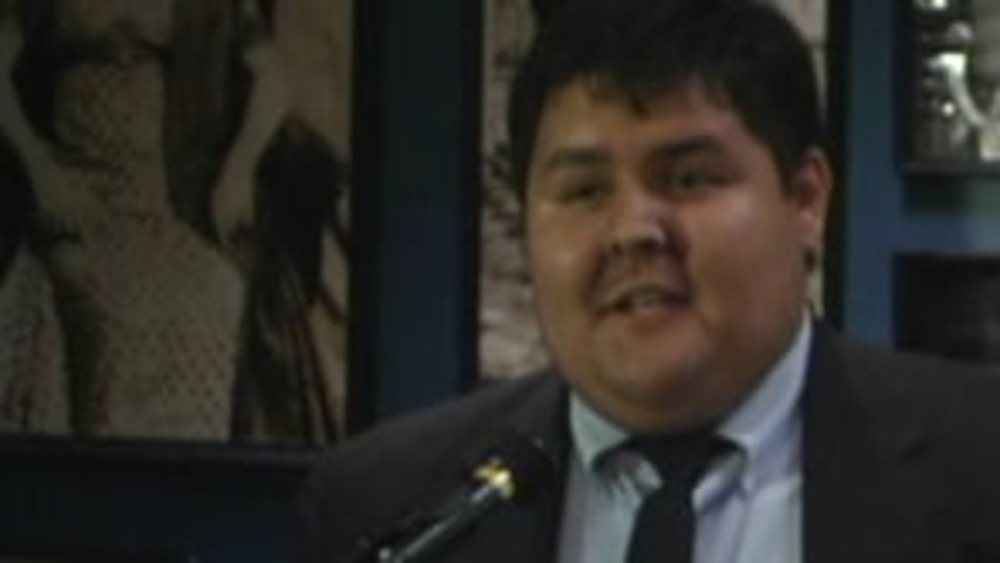
Honoring Nations: Myron Brown: Akimel O'odham/Pee-Posh Youth Council
Former President Myron Brown discusses how the Akimel O'odham/Pee-Posh Youth Council is an example of building a great program in a political setting, and shares how Gila River youth are having their political voice heard through this innovative leadership development mechanism.
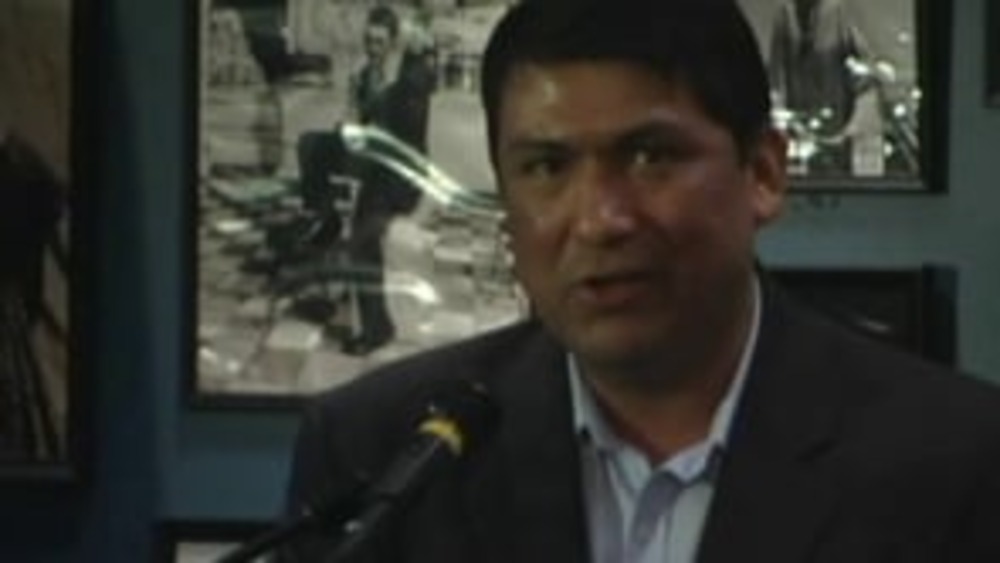
Honoring Nations: Gregory Mendoza: Akimel O'odham/Pee-Posh Youth Council
Gila River Indian Community Governor Gregory Mendoza, formerly the director of the Akimel O'odham/Pee-Posh Youth Council, provides a history of this trend-setting example of innovative governance and discusses the many different ways that it strengthens the Gila River Indian Community.
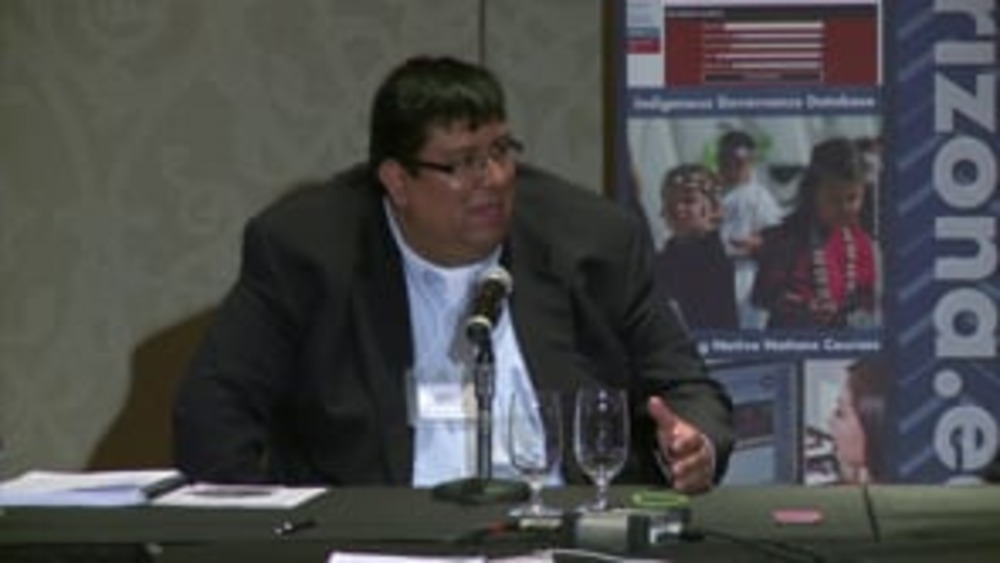
Anthony Hill and Angela Wesley: The Process of Constitutional Reform: The Challenge of Citizen Engagement (Q&A)
Presenters Anthony Hill and Angela Wesley field questions from the audience about the approaches their nations took to constitutional reform.
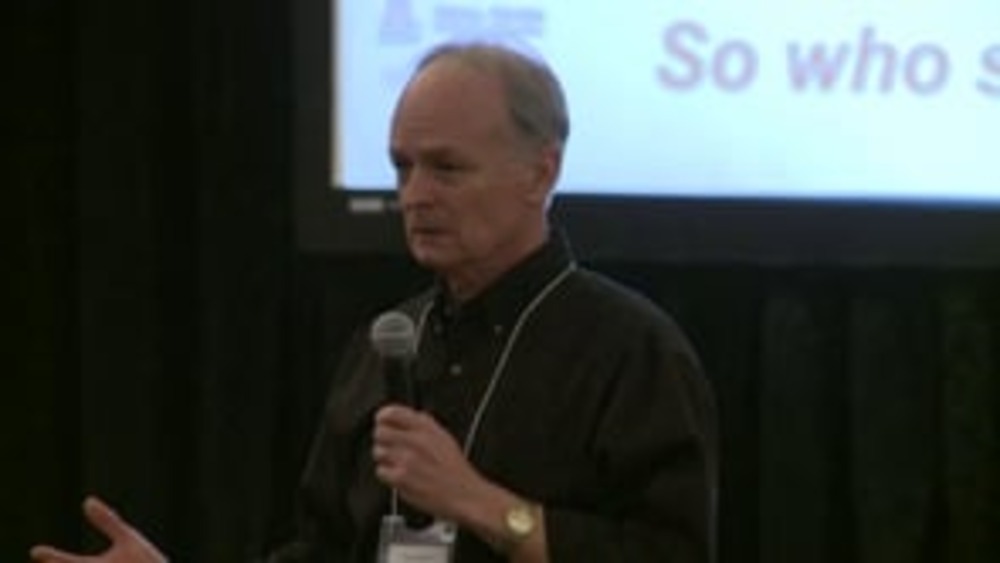
Stephen Cornell: The Task of Reclaiming Self-Governance (Presentation Highlight)
In this highlight from the presentation "Key Things a Constitution Should Address: 'Who Has Responsibility for What?'," NNI's Stephen Cornell provides an overview of the fundamental questions that Native nations must ask themselves as they reclaim control over and then redesign their governance…
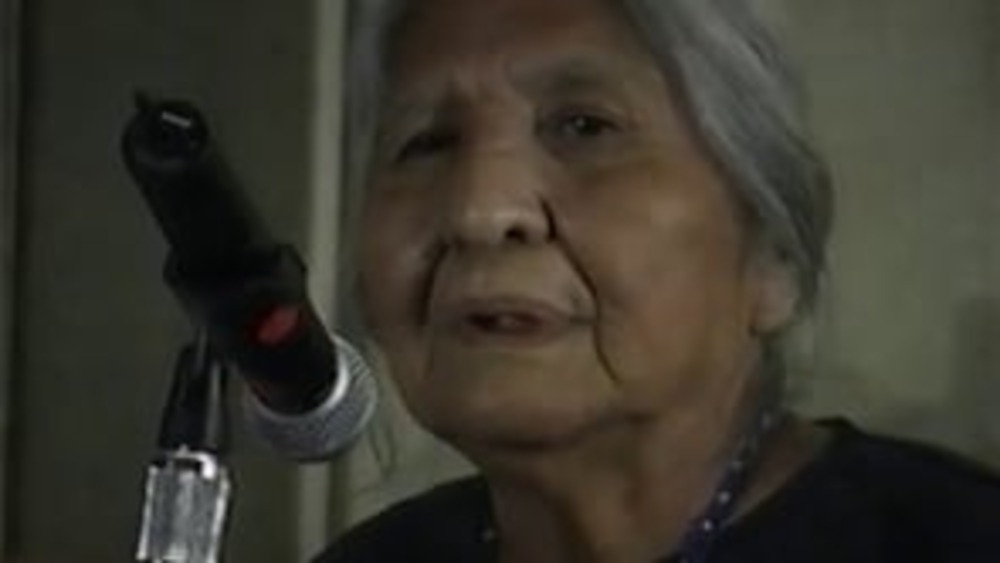
Honoring Nations: Jeanette Clark Cassa: San Carlos Apache Elders Cultural Advisory Council
Jeanette Cassa (1929-2004), Coordinator of the San Carlos Apache Elders Cultural Advisory Council (ECAC), discusses ECAC's work and the traditional Apache core values that its member elders work to instill in the younger generations of Apache people. She also stresses the importance of tribal…
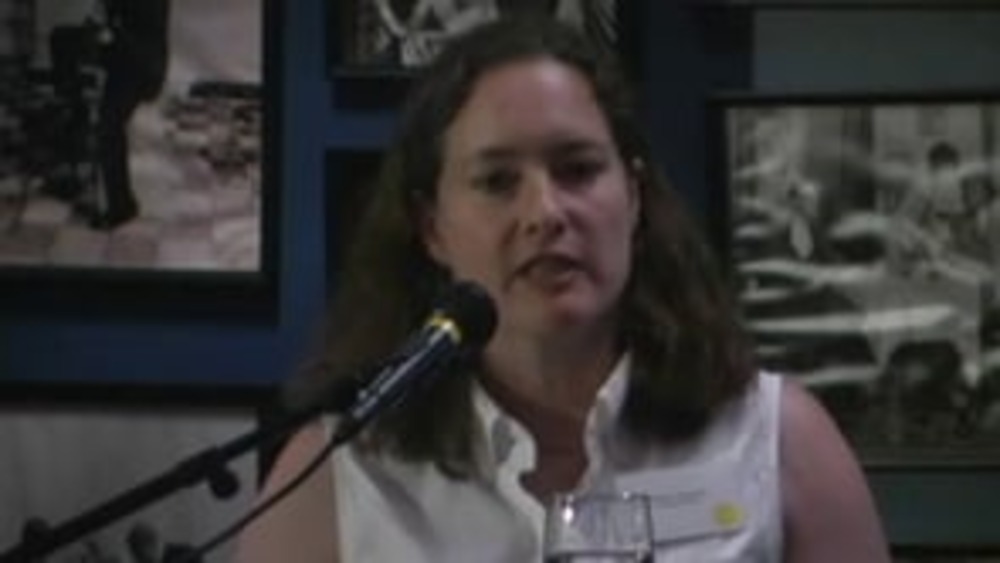
Honoring Nations: Miriam Jorgensen: Using Your Human and Financial Resources Wisely
NNI Research Director Miriam Jorgensen kicks off the 2004 Honoring Nations symposium with a discussion focused on "Using Your Human and Financial Resources Wisely," In her presentation, she frames key issues and highlights the ways that successful tribal government programs have attracted…
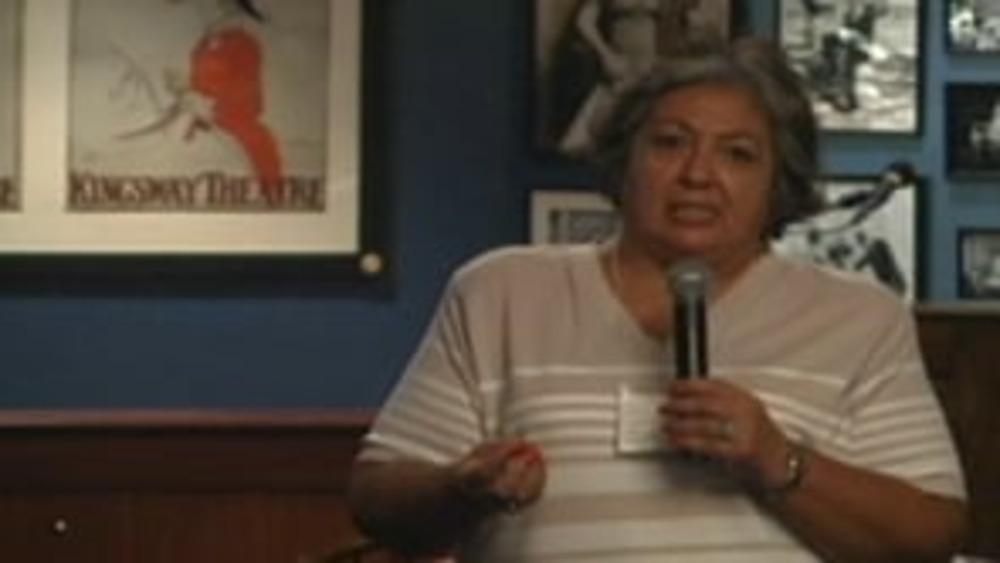
Honoring Nations: Jennifer Harris and Julia Davis-Wheeler: The Healing Lodge of the Seven Nations
Representatives Jennifer Harris and Julia Davis-Wheeler of the Healing Lodge of the Seven Nations youth treatment center discuss the Lodge's genesis and how it works to strengthen the families of the seven Native nations it serves.
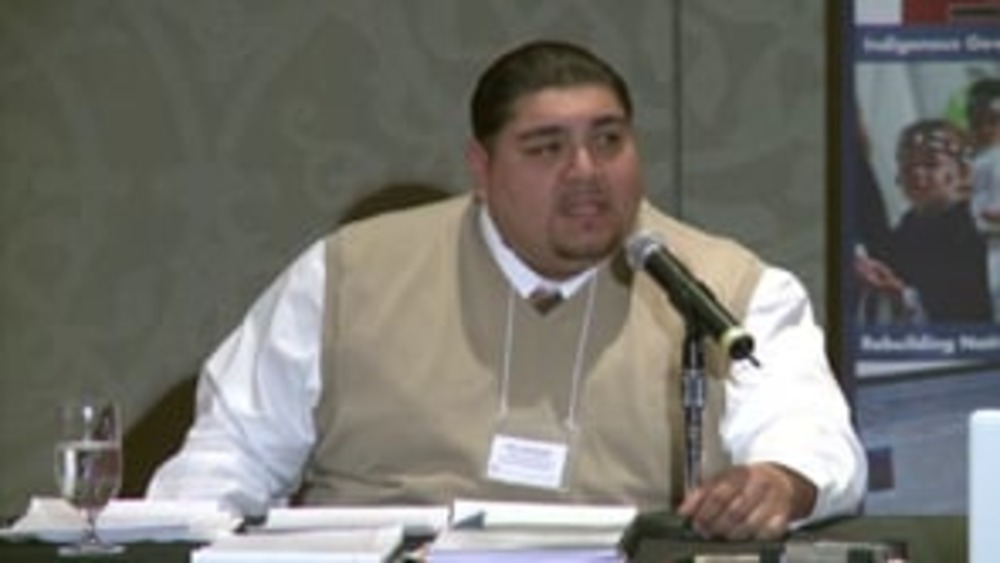
Ruben Santiesteban and Joni Theobald: Choosing Our Leaders and Maintain Quality Leadership: The Lac du Flambeau Band of Lake Superior Chippewa Indians
Ruben Santiesteban and Joni Theobald of the Lac du Flambeau Band of Lake Superior Chippewa Indians provide an overview of how Lac du Flambeau developed a new approach to cultivating and then selecting quality leaders to lead the Band to a brighter future.
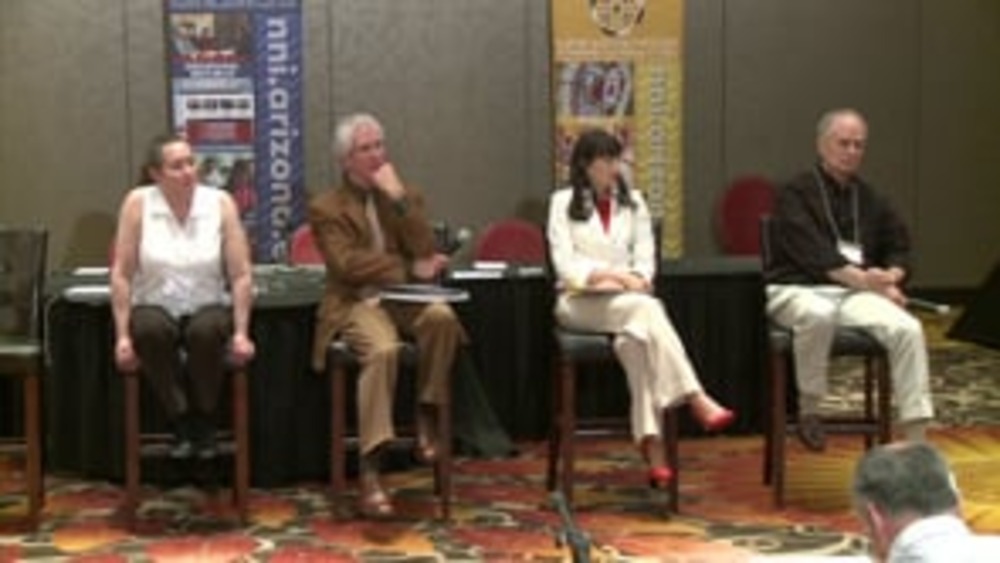
Constitutions and Constitutional Reform - Day 1 (Q&A)
Presenters and moderators from the first day of NNI's "Tribal Constitutions" seminar gather to field questions from seminar participants on a variety of topics ranging from dual citizenship to the relationship between a nation's constitution and its economic development environment.
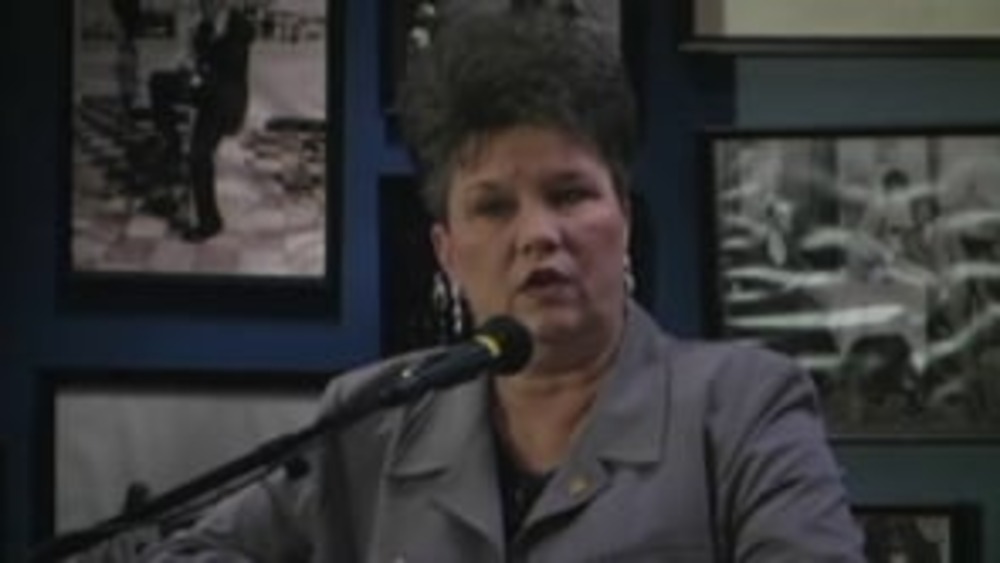
Honoring Nations: Kay Perry: Chuka Chukmasi Home Loan Program
Kay Perry with the Chickasaw Nation's Housing Counseling and Loan Service program provides an overview of the Chuka Chukmasi Home Loan Program and how the program uses human and financial resources wisely.
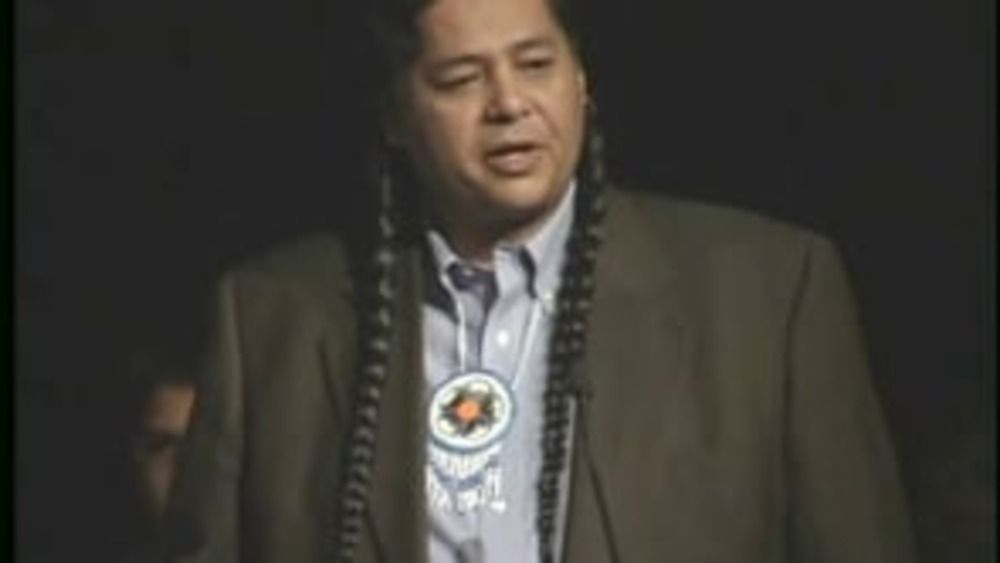
Honoring Nations: Lee Sprague: Migizi Business Camp
Lee Sprague (Little River Band of Ottawa Indians) presents an overview of the Migizi Business Camp to the Honoring Nations Board of Governors in conjunction with the 2005 Honoring Nations Awards.
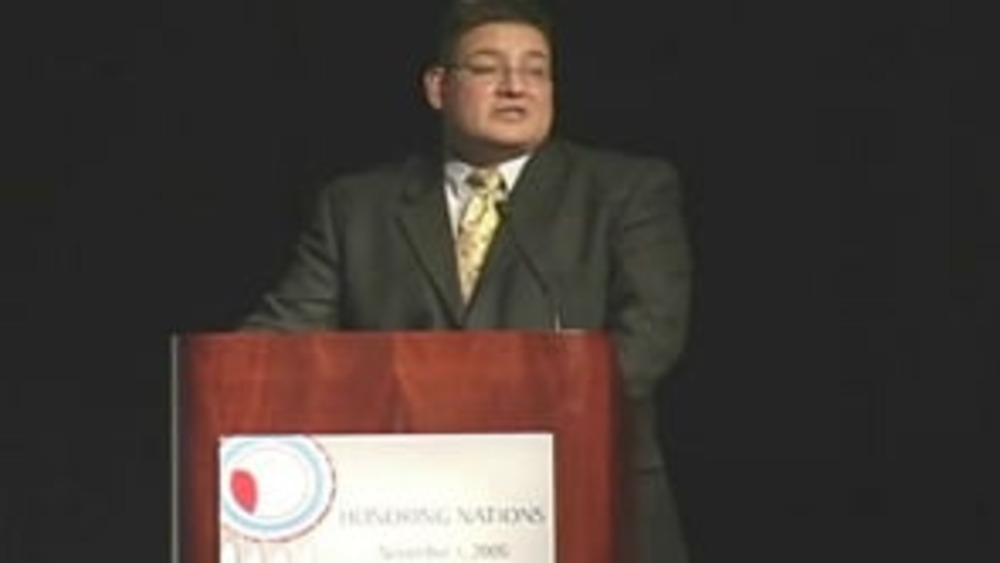
Honoring Nations: Mark Graham: Navajo Nation Sales Tax
Mark Graham, former executive director of the Office of the Navajo Tax Commission, presents an overview of the Navajo Nation Sales Tax to the Honoring Nations Board of Governors in conjunction with the 2005 Honoring Nations Awards.
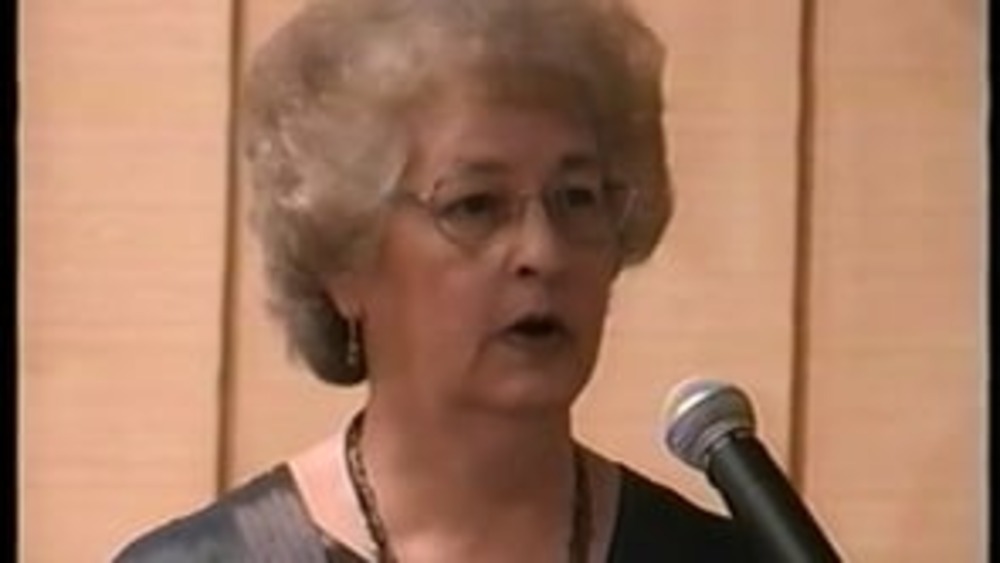
Honoring Nations: Julia "Bunny" Jaakola: Turning Sovereignty into a Practical Reality: The Fond du Lac Band of Lake Superior Chippewa
Julia "Bunny" Jaakola shares how the Fond du Lac Band of Lake Superior Chippewa turned sovereignty into a practical reality through leadership, community engagement, and collaboration with outside entities.
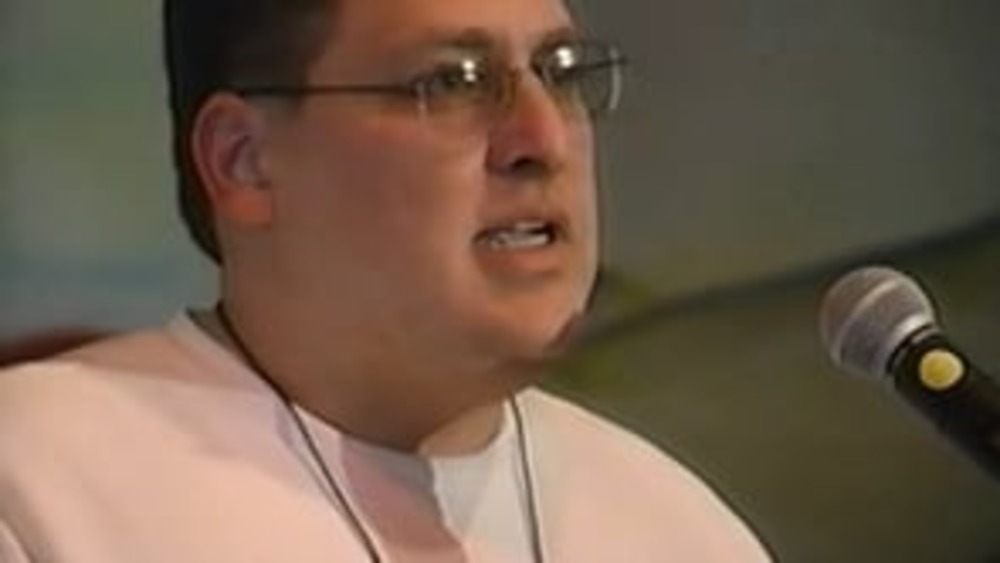
Honoring Nation: Lance Morgan: Ho-Chunk, Inc. Economic Development Corporation
Ho-Chunk, Inc. CEO Lance Morgan share the lessons he and the Winnebago Tribe of Nebraska have learned about the keys to creating an economic development environment capable of fostering successful nation-owned enterprises. He stresses the need for some Native nations to engage in constitutional…
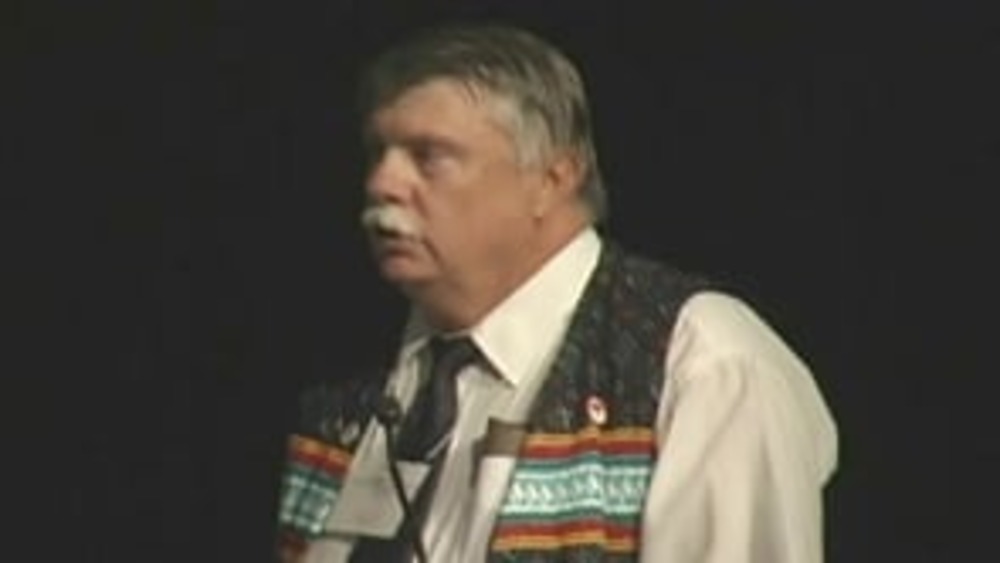
Honoring Nations: Steve Terry and Rory Feeney: Miccosukee Tribe Section 404 Permitting Program
Miccosukee Tribe Land Resources Manager Steve Terry and Fish and Wildlife Director Rory Feeney present an overview of the Miccosukee Tribe Section 404 Permitting Program to the Honoring Nations Board of Governors in conjunction with the 2005 Honoring Nations Awards.
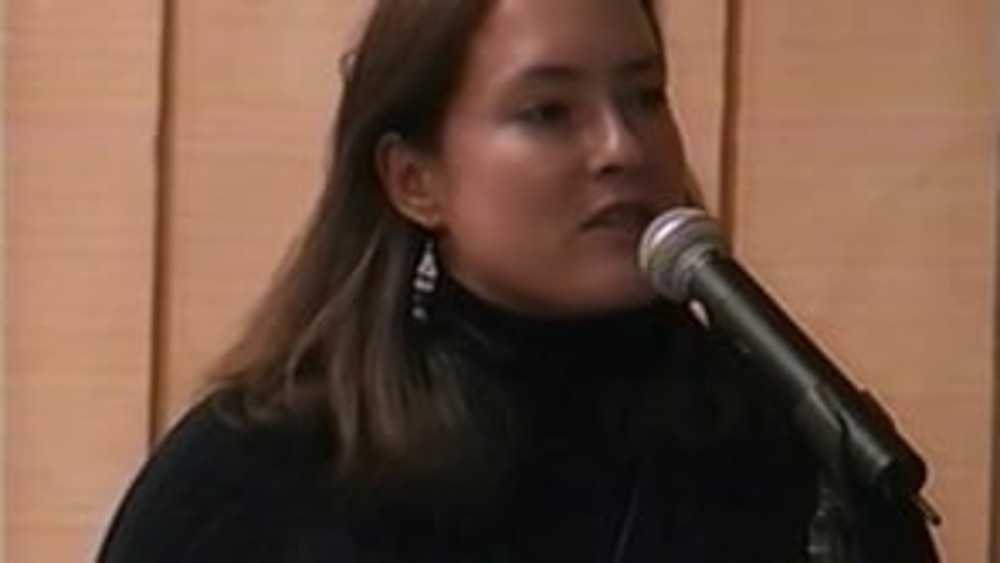
Honoring Nations: Miriam Jorgensen: Achieving Good Governance: Cross-Cutting Themes
Miriam Jorgensen, Director of Research for the Native Nations Institute and the Harvard Project on American Indian Economic Development, shares the cross-cutting themes of good governance that exist among the Honoring Nations award-winning programs.
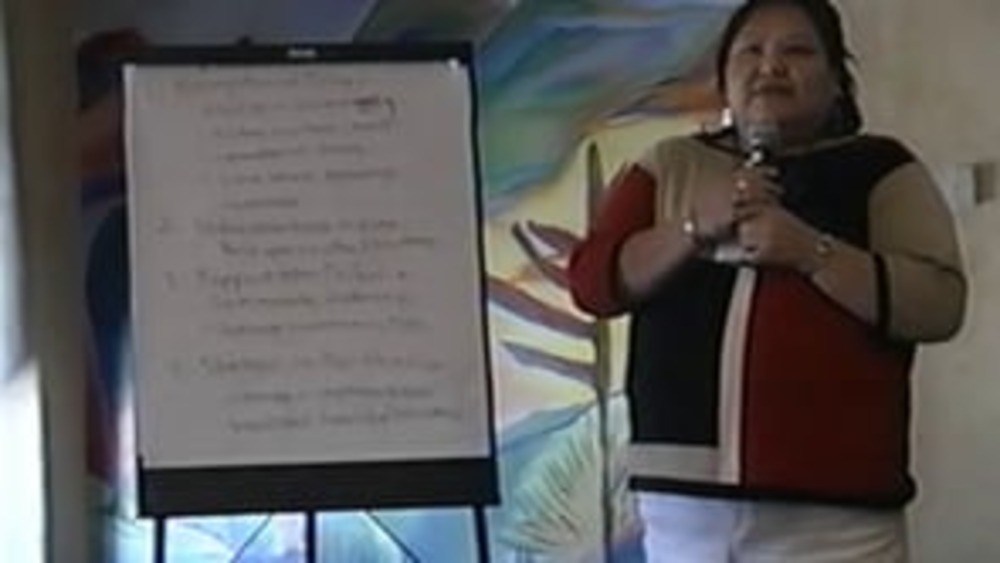
Honoring Nations: Elizabeth Woody: Environment and Natural Resources
Elizabeth Woody reports back to her fellow Honoring Nations symposium attendees the consensus from the environment and natural resources breakout session participants, synthesizing their deliberations into four key elements for nation-building success in the environmental and natural resource…
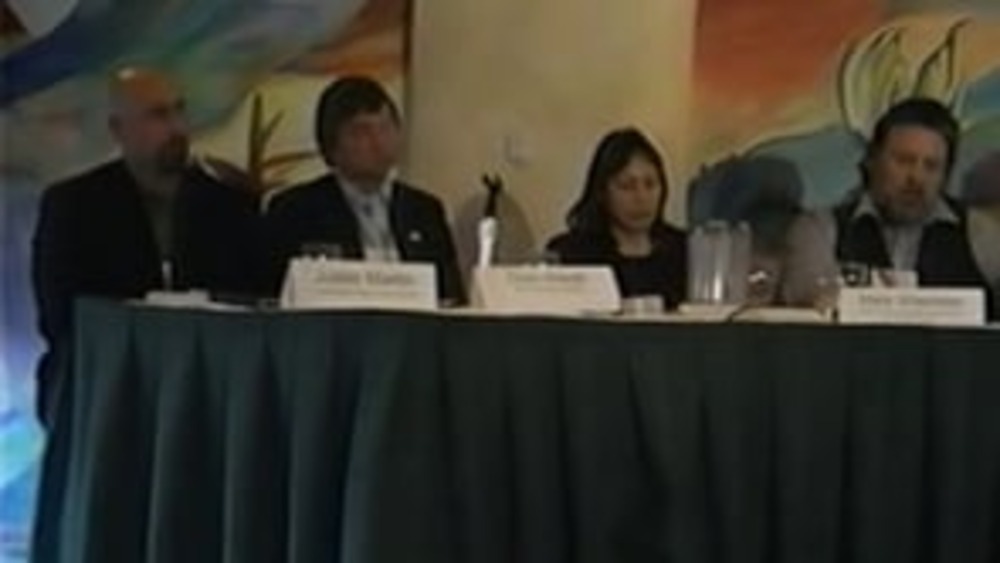
Honoring Nations: Using Partnerships to Achieve Governing Goals
Heather Kendall-Miller moderates this panel of Native leaders for a discussion on building and maintaining intergovernmental relationships.
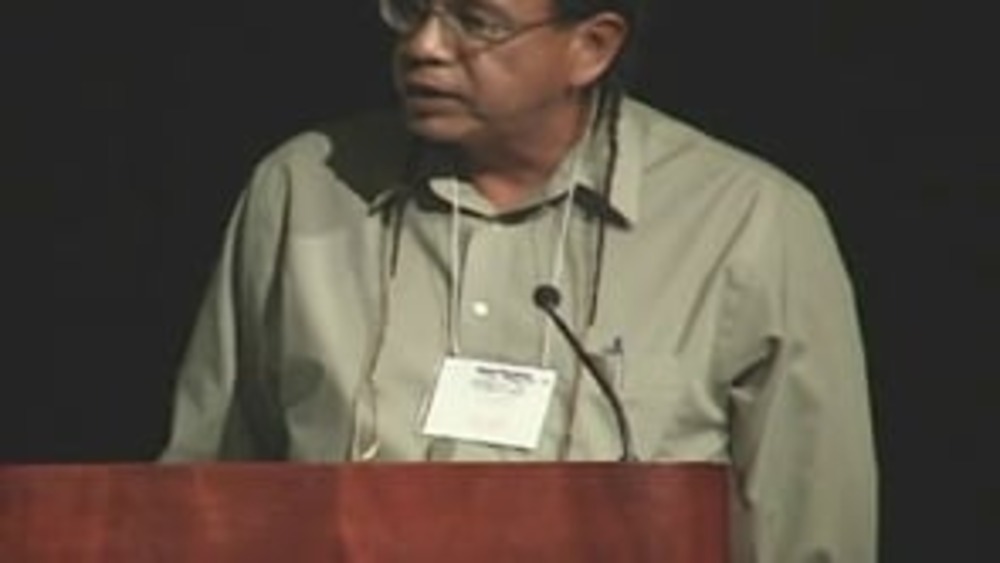
Honoring Nations: Tim Mentz and Loretta Stone: Standing Rock Sioux Tribal Monitors Program
Tim Mentz and Loretta Stone of the Standing Rock Sioux Tribal Monitors Program present an overview of the program's work to the Honoring Nations Board of Governors in conjunction with the 2005 Honoring Nations Awards.
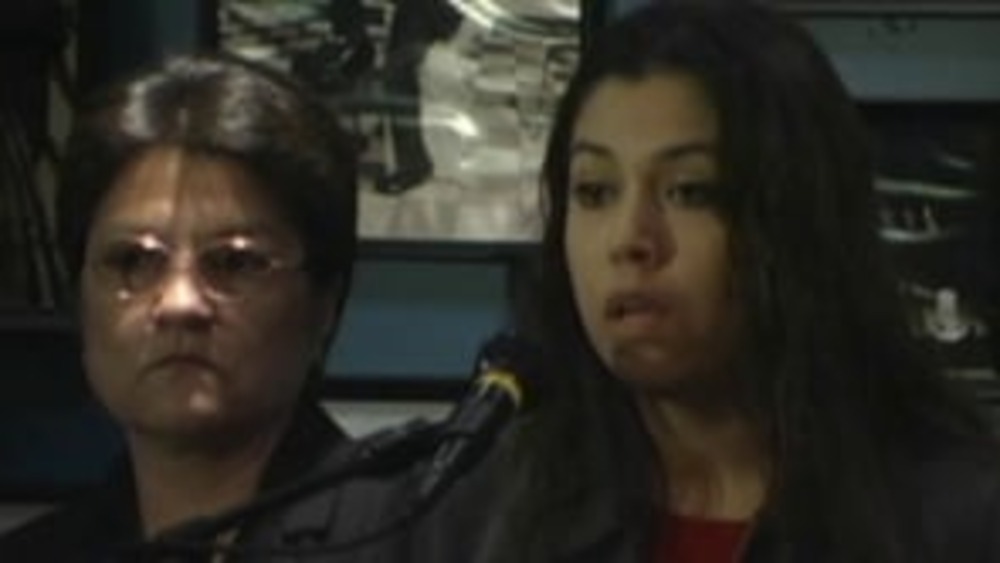
Honoring Nations: Tina Scott and Nan Smith: Mississippi Band of Choctaw Family Violence and Victim's Services
Program representatives Tina Scott and Nan Smith provide an overview of Mississippi Choctaw's Family Violence & Victim's Services program and discuss how its integrated approach has improved the quality and effectiveness of the services it provides to Choctaw citizens.
Pagination
- First page
- …
- 3
- 4
- 5
- …
- Last page
